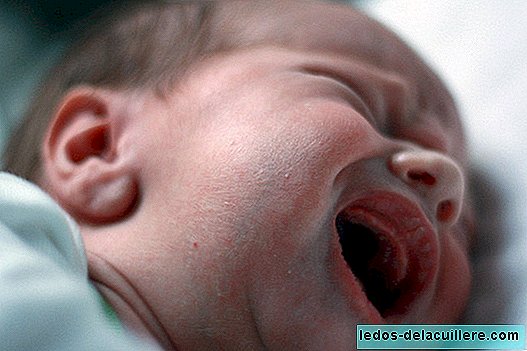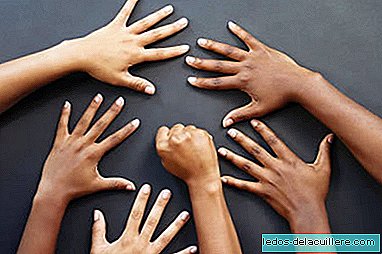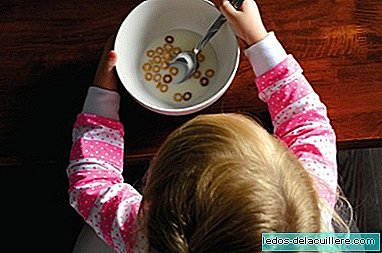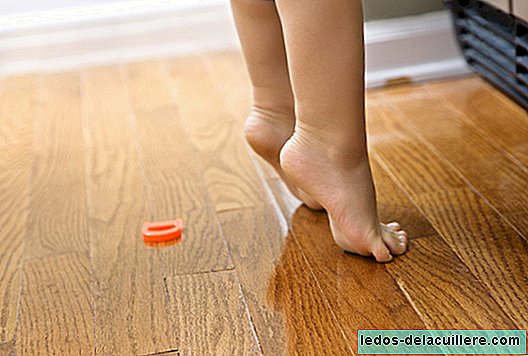Crying is the only way our baby has to ask for help. And how not to do it? The baby cries to tell us that he needs something: he is uncomfortable, he is cold, he is hungry (or in need of suction), he is in pain, or he simply wants to be in arms, in contact with you. As you can see, all basic needs; A baby does not have folds or want to manipulate us with his crying.
But what happens in the mother's brain when she hears her baby crying? A group of researchers says that the same mechanisms are activated in the brains of mothers of different cultures, no matter where they live.
This is indicated by a new study conducted by the National Institute of Child Health and Human Development (NICHD), according to which the reaction of moms to the crying of their babies is universal and consists of pick them up and talk to them. This has been the most common response, far ahead of other reactions such as distracting or feeding them.
The mother's brain is biologically programmed to attend to her crying

To do this, they observed the behavior of 684 recent mothers from 11 different countries (Argentina, Belgium, Brazil, Cameroon, France, Israel, Italy, Japan, Kenya, South Korea and the United States).
The researchers recorded an hour of interaction between mothers and their five and a half month old babies at home to analyze how they responded to their baby's cries: showing them affection, distracting them, feeding them, lifting them, kissing them, taking them in the arm, talking to them ...
Regardless of where they came from, all mothers tended to respond the same in the first few seconds: they took them in their arms and talked with their babies to reassure them.This was the most common trend among mothers of different cultures before doing anything else.
What happens in the mother's brain?
Seeing that they all had similar behavior, they decided to complement the study with a record of brain activity to see if the same brain mechanisms were also activated. To corroborate it, they also recorded brain activity in one hundred mothers in the United States, China and Italy.
The researchers discovered that crying activated certain brain regions: Broca's area and the upper temporal regions, both related to speech processing and complex sounds; as well as the midbrain and striatum regions associated with child care.
When the baby cries, the mother releases oxytocin, known as the love hormone, which motivates her to take care of it and protect it, as well as norepinephrine, which has important functions in our nervous system, such as wakefulness, motivation or stress. In turn, the heart accelerates and the conductivity of the skin is altered.
The authors conclude that there is a neurobiological and evolutionary base for the human maternal response to babies crying. The responsiveness of the caregiver is vital for the survival of the baby and, therefore, for the continuation of the species.
The author of the study hopes that in the light of the results, brain responses that are activated in women who mistreat their children can be investigated.
Your baby's cry is unique

Another study conducted in Tokyo determined that mothers are able to distinguish the crying and laughter of their baby from others, and that by doing so, they also They activate specific circuits in your brain.
Baby crying activates brain mechanisms in the mother that make it go instinctively to assist you. That is why it suffers so much when behavioral methods are put into practice, because they are completely contrary to what we are naturally programmed to do: go to a request for help.
Fewer studies have been done with parents, but these suggest that both fathers and mothers are exactly as qualified to distinguish the crying of their baby. This ability to identify the crying of your own baby is determined by the time spent with him, not by the gender of the parent.
Always attend to your crying
Although some say that crying widens the lungs, it helps them understand that they cannot have it and everything and other talk, there are numerous studies that indicate that the baby's crying should always be taken care of.
It is not possible to spoil a baby by paying attention and providing protection and affection when needed. On the contrary, a baby that is usually loaded while crying could be a healthier, less depressive, friendlier, empathetic and even more productive adult.
A baby, like any mammalian baby that feels insecure and unprotected by being away from its mother, feel fear. In reaction to this threat, he cries and his brain increases the secretion of cortisol, the stress hormone. The consequences of continued stress during childhood creep during the rest of life.
As we know, the experiences during the first years of life have great influence on the rest of our life. The child's brain forms a thousand new connections per second in the first three years of life, connections that form the basis of its future. Attend to the baby's crying, be aware of their needs, provide affection, arms, kisses and caresses "nourish" your brain of positive experiences, helping them grow healthy, happy and balanced.












